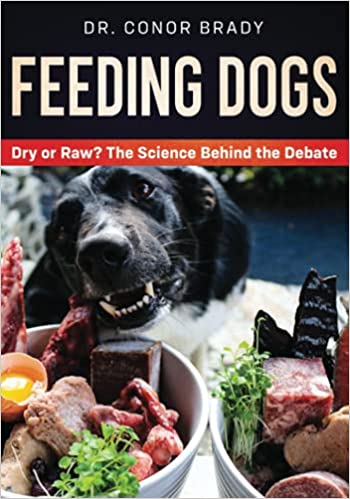Ever wondered what the best diet is for your pomsky?
When you bring your pomsky home one of the first things you will be thinking about is what your pomsky will eat. There’s a huge selection to choose from and it can be overwhelming when stood in the pet store looking at all the colourful bags and tins.
You may have heard that pomskies have a sensitive stomach, digestive issues and can be picky eaters. We have done the research and have members who have studied and found the best diet for their pomsky. We are here to share that info with you.
First question we ask ourselves is where our pomsky came from?
We don’t know for certain when dogs became domesticated. We do know however that the dog and the grey wolf descended from a single ancestor about 100,000 years ago. In 2010 Russian scientists identified the remains of what is believed to be one of the earliest ‘dogs’ ever discovered. The remains were 33,000 years old.
Now we need to look at the Husky and the Pomeranian which has been used to create our wonderful Pomskies. The Siberian Husky is one of the 14 oldest dog breeds according to research done. Coming from laika/spitz type dogs that lived with the Chukchi tribes we can see a strong resemblance to the wolves of today. The Siberian Husky is part of the spitz breeds which include Samoyed, Finnish Lapphund, Volpino, American Eskimo, German Spitz and the Malamute to name a few. Selective breeding by us humans have given us this huge variety all coming from the same ancestor as the grey wolf.
Second question is whether the pomsky is a carnivore or an omnivore.
Its also clear that the ancestors of the dogs we have today were clearly meat eaters. Even after the thousands of years of domestication, the digestive system and structure of the mouth has not really changed. Dogs have pointed teeth for tearing meat and do not have the ability to grind their food or move their jaw from side to side like humans do. If you watch your dog eating they look like they just take a mouthful and swallow. They do. When humans eat the digestion of food starts in the mouth. Our saliva contains an enzyme called amylase so as soon as you put food in your mouth it starts to break down starches (complex carbohydrates). Dogs don’t have this in their saliva. The produce a small amount of amylase from the pancreas where it can help to digest small amounts of starches. With this in mind we know that dogs are not really built to eat these complex carbohydrates (Potato, wheat, oats, barley). Dogs are clearly Carnivores and should be fed a diet that is suitable to them. Some carnivores will only eat a diet of meat whilst some will supplement their meat diet occasionally with vegetation.
OK so what will be the best diet for my pomsky?
Looking at the digestive system it is clear that a Pomsky would need to eat a diet that is as close to that of his ancestors as possible. It is also noted that northern breeds, which our pomsky is descending from, have a problem absorbing zinc. This results in a zinc deficiency and can cause a number of health issues including a low immune system, skin lesions around the mouth and eyes, sores between the toes (you may have heard of Hot Spots). Although its not fully understood why Northern breeds suffer from this zinc deficiency, it is believed that the absence of a fresh diet, such as fish, meat and offal (which would be their staple diet in a natural environment) is a major issue. Feeding a highly processed diet has a huge effect on the modern day dog, not just Northern Breeds. Similar to us eating a pot noodle every day, a highly processed diet will cause health issues. A healthy gut equals a good immune system which in turn gives us good health. It’s the same for your Pomsky. A well balanced, species appropriate diet is by far the best you can give your dog. With this in mind, we must recommend a raw diet for your pomsky. Fun fact. Did you know that humans are the only mammal that cooks their food? A raw diet is made up of muscle meat/fish, offal and bone. There are some amazing suppliers of raw foods that offer delivery and with raw feeding pet shops popping up all over the country it is becoming easily available to all pet owners. If you want to know more about raw feeding you can contact us via our facebook page or drop us an email. You can also pop along to RAWPETMEDICS PALEO RIDGE AND RAWFEEDING REBLES


5 Benifits for feeding Raw
1. Less hyperactivity and behavioural issues
2. Better digestion
3. Optimal immune system
4. Healthier skin and coat
5. Smaller, firmer and less smelly poops! (and less wind)
Not only that, allergy symptoms are almost none existent in a raw fed dog, a KETO DIET can cure cancer, natural joint supplements are included in the diet, less visits to the vet, less stomach issues such as vomiting, loose stools and less yeast infections to name a few. It really is a no brainer.
Understandably there are people who can not feed a raw diet. That’s something that only you can decide. Problems you can come across are freezer space and availability. Adding some fresh food to your dogs bowl daily will help to give your dog these much needed nutrients. Have a quick look on www.allaboutdogfood.co.uk Once on the website you can find a good quality kibble. It may seem more expensive that your regular dog food but the amount of kibble you will feed from a good quality kibble is much less than a kibble which included unnecessary fillers and highly processed meats. You need to source a kibble that has 80% meat content and the first three ingredients must be meat/fish protein. Avoid kibble that contains lots of grains and fillers and bulky carbohydrates. Buy small bags, think of a huge bag of kibble that has been open for weeks. Surely that would be rancid after a week or so. Store it in an airtight container. Ensure the kibble is not made by companies that also make chocolate bars and soap powder. Most of all do your research. You can always contact us if you need any guidance. We are here to support all our members, breeders and owners alike.